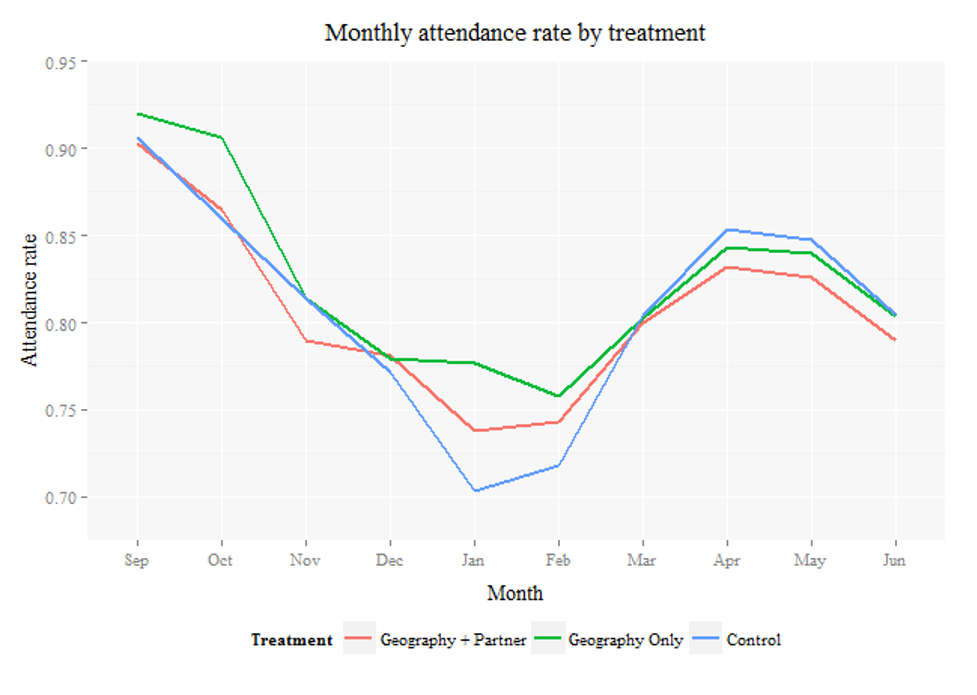Promoting Parents’ Social Capital to Increase Children’s Attendance in Head Start: Evidence From an Experimental Intervention
Summary by: Samantha Batel
Increasing attendance in early childhood education is a national goal
Head Start is the nation’s largest federally funded early childhood education program for children from low-income families. This type of programming, which is a central policy lever for expanding opportunity, can only be effective if children attend regularly. However, there is no systematic evidence on whether or why strategies to improve attendance are effective.
Does increasing parents’ social capital improve children’s Head Start attendance?
Parents who interact with other parents daily are more likely to build social connections. This social capital, formally defined as the interpersonal relationships that create shared norms, values, trust and understanding, might be one lever for increasing children’s attendance in early childhood education programs like Head Start. Parents may be more likely to bring their children to school regularly or to ask for help from other parents when they are socially connected.
This study found that parent participation in a low-cost intervention designed to promote social capital indeed did so, as measured by parents’ social networks and willingness to ask for help. Subsequent impact on attendance was mixed. There was no discernable effect on average attendance throughout the year. However, there was suggestive evidence of a positive effect on attendance during the winter months when average center attendance was lowest. Figure 1 illustrates this result, showing a less steep decline in attendance in January and February for children in the two intervention groups, which assigned children to classrooms with other children from their neighborhood of residence (geography only) or also gave parents an additional option to voluntarily pair for the purposes of improving their children’s attendance (geography + partner).
Qualitative interviews with parents and staff explore mechanisms for increases in parent social connection and children’s program attendance. Findings suggest that the geography + partner intervention offered parents the opportunity to increase connection, comfort and trust; promoted parent-initiated attendance strategies; and reinforced parents’ commitment to supporting their children’s education.
How was the study done?
The intervention took place in one Head Start building, which contained 18 classrooms across three separate centers, in a major northern city during the 2013-14 school year. The children of 307 parents who met Head Start eligibility requirements were randomly assigned to a center and to one of three types of classrooms: (a) control; (b) geography only and (c) geography + partner. Parents completed a survey in the fall and spring of the school year and parents and staff participated in focus groups at the end of the school year.
Full Article Citation:
Sommer, T.E., Sabol, T.J., Chase-Lansdale, P.L., Small, M., Wilde, H., Brown, S., & Huang, Z.Y. (2017). Promoting Parents’ Social Capital to Increase Children’s Attendance in Head Start: Evidence From an Experimental Intervention. Journal of Research on Educational Effectiveness, 10(4), pp. 732-766, DOI: https://doi.org/10.1080/19345747.2016.1258099.
